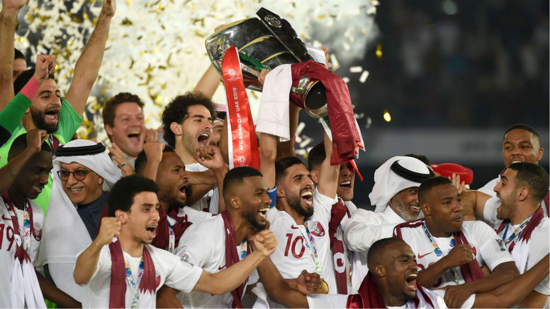ABDULMOHSAN ALMUTAIRI WRITES– What do football and a sociopolitical blockade in the Middle East have in common? Many of us would say, “not much.” Tensions between the United Arab Emirates (UAE) and Qatar were apparent during the 2019 Asia Cup, held between January 5 and February 1, when the UAE made tangible efforts to stifle Qatari support, and demotivate the Qatari football team.
The Asia Cup, organized by the Asian Football Confederation, is the second oldest continental football championships in the world, and the winner is deemed champion of Asia and qualifies for FIFA cup. The prominent AFC Asia Cup was hosted by the UAE this year, with Qatar emerging as the Asian Champions after defeating the home team in semifinals, and Japan in the final match.
Reports have revealed that the Qatari team was not only the victim of derogatory comments about their country but were subject to ill-treatment when other team captains refused to shake the hands of Qatari players. The team also faced logistical issues such as taking roundabout flights to reach the destination and long wait times at the immigration counter upon arrival.
Fans were met with similar treatment, as UAE officials barricaded Qataris from entering the country by creating stringent rules such as two layers of vetting, and a requirement of special clearance to buy tickets for the games. It was equally difficult for organizing heads and media teams from Qatar to enter the UAE to watch the matches that their teams played.
Furthermore, in a surprisingly pugnacious move, the Abu Dhabi Sports Council, a sports council created by the UAE government to promote sports in the country, purchased all the unsold tickets of the semifinal match between the UAE and Qatar. Critics of the purchase speculate it to be a strategic move to keep Qatari football fans away from supporting their team for the critical match, the winner of which would go to the finals.
The semi-final match between UAE and Qatar was seen as ‘Blockade Derby,’ with UAE fans hurling shoes and empty bottles at the Qatari team after the second goal. The cultural context further explains the weight of the action, as throwing a shoe is seen as the most insulting act in the Middle East.
The absence of Qatari fans in the football stadiums of the UAE for two consecutive years has not gone unnoticed. Several critics of UAE’s aggressive tactics, including UAE’s own citizens, disagreed with using sports as a political tool. Eric Heiden, an American athlete, and Olympic champion, once said. “Sports and Politics don’t mix.” Football fans in the region have mocked the games as ‘90 minutes (of) GCC warfare,’ referring to Gulf Cooperation Council, an economic alliance of six Middle Eastern countries including Qatar and the UAE.
The regional political issues, especially the continuing blockade against Qatar heralded by Saudi Arabia, has been perpetrated namely by the UAE, Bahrain, and Egypt. The cohort severed its socio-economic relations with Qatar in May 2018, citing the country to be in support of terrorism, maintaining close ties with Iran, and meddling in the internal affairs of other countries, Al Jazeera News reported.
Football, just like any other sport, symbolizes tenacity and fairness, and the spirit of sportsmanship on behalf of all teams, organizers and spectators. However, keeping Qataris from being a part of their national accomplishment begs the larger question of unrest and hostility in the Gulf, and what else, like sports, will be tainted by unresolved political matters.


